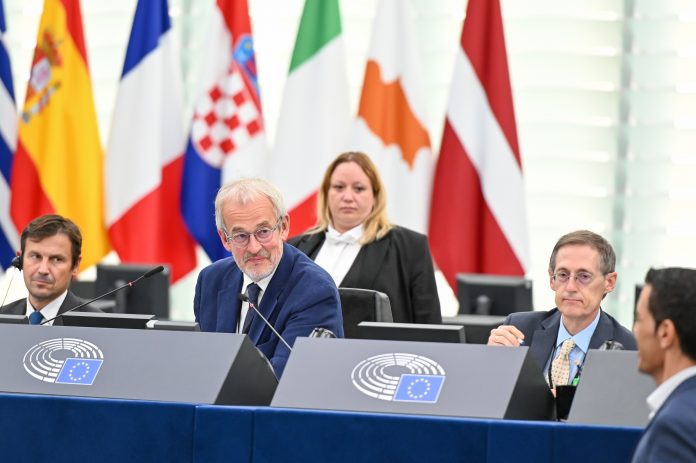On Wednesday, Parliament adopted its requests for the new pan-European cultural movement that aims to find smart, sustainable and aesthetically pleasing solutions to improve our daily lives.
In a report adopted on Wednesday Parliament insists on concrete criteria for selecting the New European Bauhaus (NEB) projects and initiatives, which will be funded with the EU money. To meet criteria suggested by MEPs, projects and initiatives would need to align with key EU policies, e.g. the Green Deal, create new jobs and business opportunities, improve accessibility, be affordable, inclusive and take gender into account.
The New European Bauhaus is an interdisciplinary initiative, launched by the Commission’s President Ursula von der Leyen in 2020, which aims to connect the European Green Deal to people’s ways of living in Europe, bringing together architecture, innovation, science and design.
Regretting the lack of clarity on funding for the NEB, they call for EUR 500 million of “fresh money” from the EU’s research and innovation programme “Horizon”. The funds would need to be included during the 2023 revision of the EU budget, the multiannual financial framework (MFF).
For the next MFF after 2027, they ask the Commission to propose a standalone New European Bauhaus programme, without reducing funding for the already underfunded Creative Europe, Erasmus+ and the European Solidarity Corps programmes.
MEPs also demand “active steps to prevent any elitist approaches or adverse effects of gentrification”. They insist that the project must primarily focus on people, by improving the quality of their lives and creating healthy and affordable living spaces, including in less developed, suburban and remote areas, addressing the spatial segregation and historical exclusion of social groups.
They argue that the NEB also must protect citizens against natural and climate-related disasters and a safety component must be included in its objectives.
“The New European Bauhaus is an extremely valuable initiative and the Parliament is determined to contribute to it as much as possible”, said the co-rapporteur Christian Ehler (EPP, DE) in a plenary debate before the vote.
He stressed that it was an important element of the Green Deal. “It is of utmost importance to create a utopian vision, a positive outlook for our citizens who should not be made fearful by purely dystopian images of their green future”.
He also called for a ‘New European Bauhaus’ label to be established for buildings and architecture, to make the initiative appealing to the private sector.
“From a democratic point of view, is it ethical to invest huge amounts of public money to improve the energy efficiency of our buildings, without improving conditions for people who live in them?” asked the co-rapporteur Marcos Ros Sempere (S&D, ES).
“What we need is a paradigm shift, and the New European Bauhaus is exactly that”, he said. “The new Bauhaus is going to improve people’s lives by putting culture, architecture, design, and town planning in service to citizens. An initiative based on sustainability, beauty and social commitment.”
In his remarks, he also called on the Commission to “come up with clear criteria on selecting and financing projects – that will be the only way to make the NEB logo worth something”.

